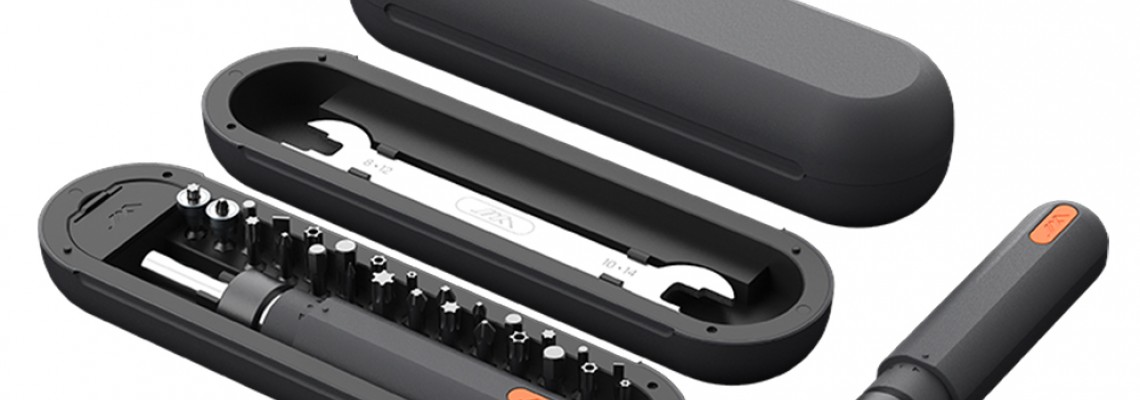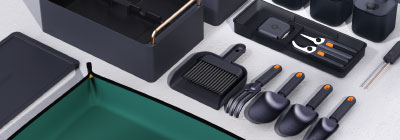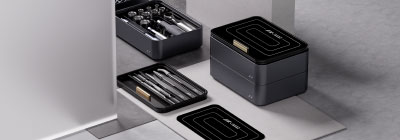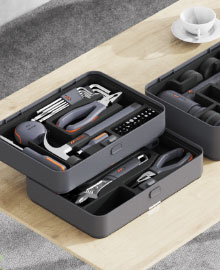
How to Choose the Right Screwdriver — A Practical Guide for Beginners & Pros
Meta title: How to Choose the Right Screwdriver — A Practical Guide for Beginners & Pros
Meta description: Learn how to pick the best screwdriver for your needs: types and sizes, materials, handle ergonomics, magnetic tips, sets vs single tools, safety and maintenance tips — everything to help you buy smarter.
Screwdrivers are among the most basic tools in any toolbox, but choosing the right one can make a huge difference in how fast, safely, and cleanly a job gets done. Cheap or mismatched drivers cause stripped screws, sore hands, and wasted time; the correct tool reduces effort and prolongs the life of both fastener and tool. This guide walks you through the essential factors to consider when buying screwdrivers so you can pick tools that perform reliably for years.
1. Start with your use case — that decides most choices
Before anything else, ask: what will you use the screwdriver for?
- Light household tasks: changing outlets, assembling furniture, tightening hinges — basic Phillips and slotted types in small-to-medium sizes usually suffice.
- Electronics and precision work: watches, phones, laptops — you’ll need precision sets with small Phillips (PH00, PH0), slotted, Torx, or tri-wing bits.
- Automotive, mechanical, or heavy-duty work: go for tougher materials, larger sizes, and sometimes impact-rated drivers for use with impact drivers.
- Electrical work: only use tools certified as insulated to the appropriate voltage standard.
Knowing the primary use narrows down head types, sizes, and material choices so you don’t overpay for unnecessary features.
2. Know the common head types and size markings
Using the correct head type and size is critical — a wrong fit leads to slipping, cam-out, and damage.
- Phillips (PH): labeled PH0, PH1, PH2, PH3 etc. PH2 is the most common household size.
- Slotted (flathead): sizes usually noted by blade width (e.g., 3.0 mm).
- Torx (star): labeled T6, T10, T25, etc. Common in electronics and automotive.
- Hex/Allen, Pozidriv (PZ), Robertson (square), Tri-wing, and others: each has its own purpose and common product categories.
When buying, pick a set or single driver that includes the exact sizes you will meet frequently — for general use, a set covering PH0–PH3, slotted in a few widths, and a couple of Torx sizes is a safe bet.
3. Blade and bit materials — durability matters
Screwdriver durability depends largely on the steel used:
- S2 tool steel: a top choice for bits and interchangeable tips; very wear-resistant.
- Cr-V (Chromium-Vanadium): good general-purpose steel with a solid balance of toughness and cost.
- Cr-Mo (Chromium-Molybdenum): often used for impact-rated bits and heavy-duty drivers.
- Carbon steel: can be hard but may be brittle or rust-prone if not treated.
If you regularly work with stubborn screws or in professional settings, favor S2 or Cr-Mo/Cr-V with heat-treated tips. For occasional home use, a good Cr-V set is often sufficient.
4. Handle design and ergonomics — comfort equals control
A shape that fits your hand and a non-slip grip reduce fatigue and improve torque control:
- Ergonomic shape: contoured handles (rounded or triangular cross-sections) allow better torque transfer and comfort.
- Material: dual-material handles (hard core with rubber/TPR overmold) offer grip and durability.
- Size and length: longer shafts reach deeper recesses; stubby drivers are useful in tight spots.
- Insulation: if you work on electrical systems, only use handles certified as insulated to the appropriate standard.
Test the handle size: if you can, hold the tool before buying; it should feel secure and comfortable when you apply force.
5. Sets vs single screwdrivers — which is right for you?
- Sets are great for beginners, hobbyists, or situations with varied fasteners. They’re cost-effective and come with storage cases.
- Single high-quality drivers are better for pros who need a specific size or a premium handle/material for heavy-duty work.
A mid-range set plus a couple of professional-grade single drivers (your most-used sizes) is a practical compromise.
6. Useful features to look for
These add convenience or safety:
- Magnetic tips: hold screws in place when working overhead or in tight locations.
- Interchangeable bit systems: one handle for many bits saves space and is versatile. Check for a positive locking mechanism so bits don’t wobble.
- Ball-end or hex shank compatibility: lets you use the bit at an angle or in a power driver.
- Insulated tools: required for electrical work; look for compliance with local safety standards.
- Rotating cap on handle: useful for controlled pressure and precision turning.
7. Common buying mistakes to avoid
- Choosing by price only: ultra-cheap tools often use poor steel or lose their tip profile quickly.
- Buying oversized or undersized heads: always match tip size to the screw.
- Ignoring warranty and brand reputation: a reliable seller and warranty can save headaches; some reputable brands offer lifetime guarantees.
8. Care and maintenance — simple steps extend life
- Keep bits clean and dry: wipe off grease and moisture to prevent rust.
- Store properly: use the provided case or a magnetic strip to keep parts organized and protected.
- Avoid using screwdrivers as pry bars or chisels: misuse damages tips and is unsafe.
- Sharpen or replace worn tips: a rounded tip slips easily and strips screws.
9. Quick buying checklist
- What’s the primary use? (home, electronics, automotive, electrical)
- Which head types and sizes do you need most often?
- What is the blade/bit material? (prefer S2 / Cr-V / Cr-Mo for durability)
- Does the handle feel comfortable and non-slip?
- Do you need magnetic tips, interchangeable bits, or insulation?
- Is there a warranty or good return policy?
Conclusion
A screwdriver is a simple tool, but buying the right one requires attention to use case, material, fit, and ergonomics. For most people, a good-quality multi-bit set plus one or two professional single drivers covers nearly every need. For specialists — electricians, mechanics, or electronics technicians — invest in certified insulated tools or premium S2/Cr-Mo bits. With the right choices and basic care, your screwdrivers will perform reliably and keep both screws and your hands safe.




Leave a Comment